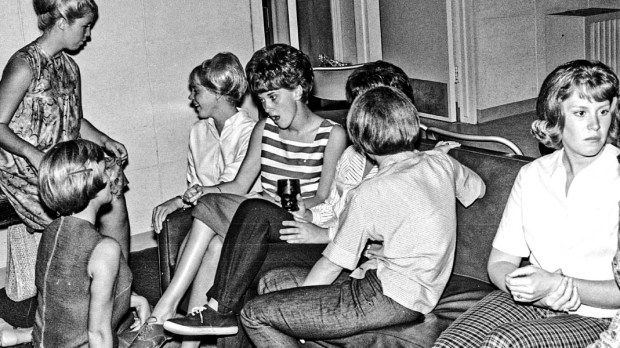Lenten Campaign 2025
This content is free of charge, as are all our articles.
Support us with a donation that is tax-deductible and enable us to continue to reach millions of readers.
“Manson was able to get as far as he did in Hollywood, mingling with rock stars and celebrity producers, for one reason above all,” explains the journalist Hadley Freeman in TheGuardian: “people can be stupid when they seek out authenticity.” The killer and cult leader died in prison, at 83, two Sundays ago.
People like Neil Young and the Beach Boy’s Dennis Wilson took him up. (This article from the Tablet gives one man’s memory of the extremism of the time, and this one from The Guardian gives some examples of the ongoing celebrity infatuation with Manson.) “Just as young people in that decade were marching to overthrow old attitudes and restrictions,” Freeman writes,
so the young Hollywood crowd fancied that they were overturning elitist structures, rejecting studio systems in favour of rock’n’roll and new cinema. Manson represented this rejection of conformity in its purest form to rich people slightly embarrassed by their riches. Mingling with him in his squalor made them feel better about themselves.
His admirers didn’t like “conformity.” It made you inauthentic. It wasn’t real. They seem to have felt his sad history as a criminal, his squalid life, his living on the edge, his leading a “free love” commune, showed that he lived a more primal, elemental, real life than they did.
Intellectuals Got There First
It wasn’t just rock stars who felt that squalor means authenticity. Intellectuals got there first. In 1957, Norman Mailer wrote the once-famous essay “The White Negro” in the journal Dissent. He was one of America’s leading novelists and public intellectuals and the journal one of the most important.
We can’t hope for any ultimate truth and meaning, Mailer insisted. The Holocaust and the atom bomb proved that. “The only life-giving answer is to accept the terms of death, to live with death as immediate danger, to divorce oneself from society, to exist without roots, to set out on that uncharted journey into the rebellious imperatives of the self.” He called the person who does this “the hipster” and “the white negro.” He idealized the “outlaw.”
That person might be a criminal or not, he continued. In either case, he decides “to encourage the psychopath in oneself, to explore that domain of experience where security is boredom and therefore sickness, and one exists in the present, in that enormous present which is without past or future, memory or planned intention.”
Being “hip,” Mailer asserted, “would return us to ourselves, at no matter what price in individual violence, [for it] is the affirmation of the barbarian. … [I]t takes literal faith in the creative possibilities of the human being to envisage acts of violence as the catharsis which prepares growth.”
Freeman, who seems to have been born about twenty years after Mailer wrote “The White Negro,” does not find his idea of “returning to ourselves” so compelling. For one thing, it often involves giving oneself over to the great man who incarnates this basic act of rebellion and authenticity. Manson, for example. “When people seek saviours,” she writes, “they generally find false prophets.”
We Should All Know Better
Sixty years later, Mailer’s earnest enthusiasm for the “hip” and for redemptive violence feels quaint. He wrote before the hipster Charles Manson showed where “violence as catharsis” leads, but he should have known better. His proposals were stupid even then.
We roll our eyes. The sixties, wow, can you imagine? But there’s a twist to the story. We have Catholic versions of the claim to authenticity that makes people stupid. Most of them depend upon comparing ourselves with someone we think inauthentic, in the same way Mailer put down the “squares” who would never be hip. Neil Young and Dennis Wilson, they are us.
We can feel ourselves to be the true Catholics who uphold the real faith against the world, including most other Catholics. We’ve pushed through the comfy cozy middle class American life to the true Catholic faith. Every style of Catholicism has its versions of this. Each sometimes follow dubious characters who seem perfectly to incarnate the real, the solely authentic, Catholicism.
But there’s a second twist. Mailer and his peers got something right. He wrote a lot of rubbish, but he reacted against something that we also reject. We shouldn’t conform ourselves to society. There’s something wrong with it. It isn’t fully authentic in the way the Church understands authentic humanity.
It is “the world” against which Jesus and the saints warn us over and over and over. The only life-giving answer is to accept Christ’s terms, to live with death to self as a calling, to divorce oneself from the world, to exist without worldly roots, to follow Jesus on that uncharted journey into the glorious freedom of the children of God.
Read more:
From a Church of “in-crowds” and comfort, deliver me, Lord

